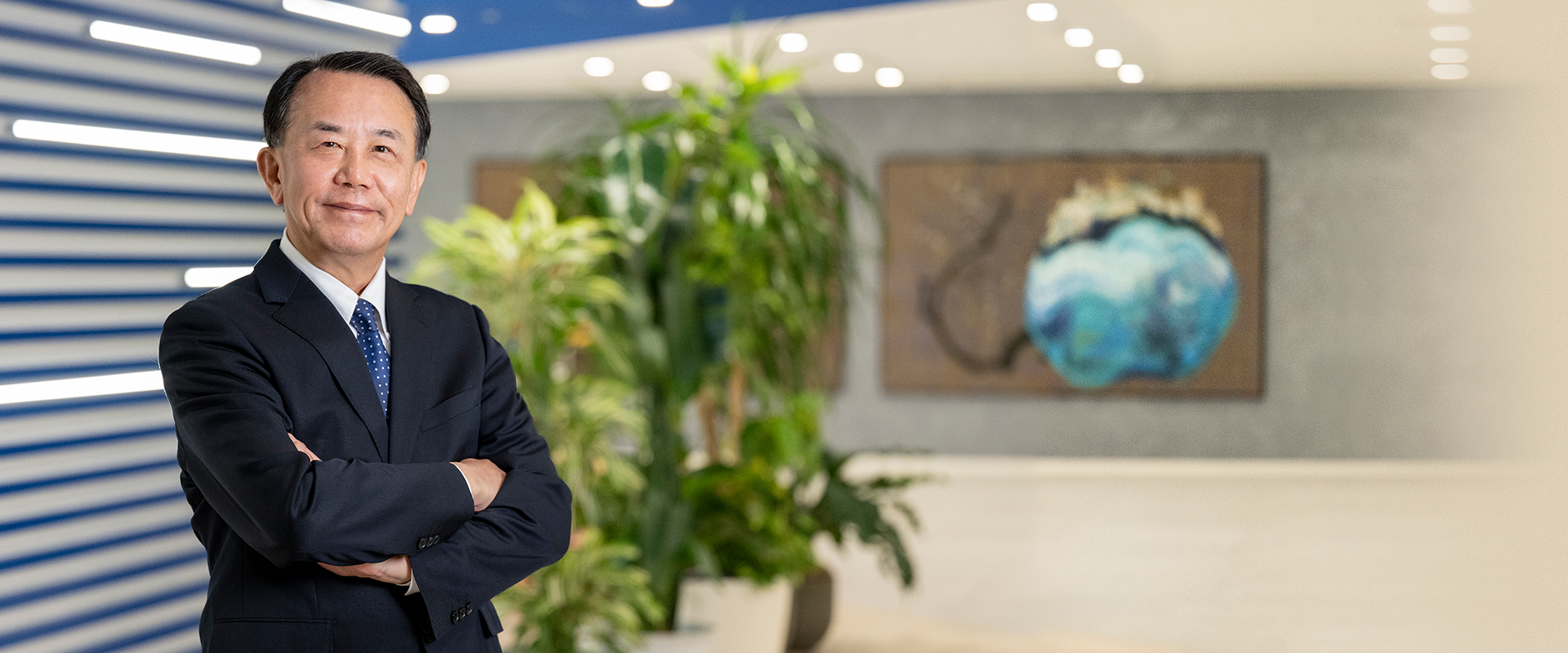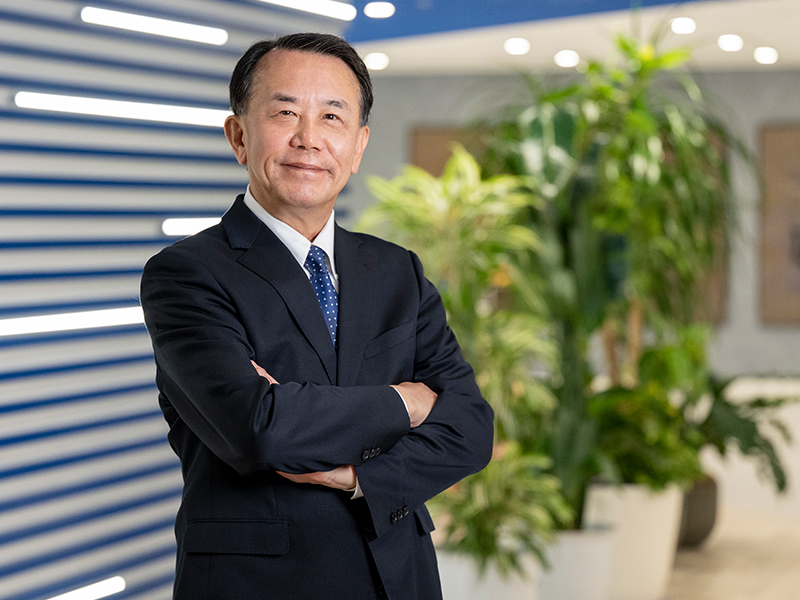



In FY 2024, our company proudly celebrated its 60th anniversary. When we were founded in 1964, Japan was in the midst of rapid economic growth, marked by the Tokyo Olympics. Since then, we have weathered numerous economic challenges, including the bursting of the IT bubble in 2001 and the global financial crisis in 2008. Each time, thanks to the unwavering support of our customers, we overcame adversity and steadily grew into a leading company in the field of engineering plastics. I would like to take this opportunity to express my sincere gratitude.
In FY 2023, the global logistics disruptions triggered by the COVID-19 pandemic led many manufacturers to accumulate large inventories of raw materials. As a result, it took longer than expected to reduce the excess inventory in the market, making the year particularly difficult for us.
However, in FY 2024, despite a global decline in production volume among Japanese automobile manufacturers, we achieved a recovery in performance. This was driven by the emergence of AI-equipped smartphones and PCs, the increase in production of AI servers, and our strengthened sales and R&D efforts targeting Chinese automakers and parts manufacturers.
On the production front, we began commercial operations at our new POM plant in Nantong in November, with an annual capacity of 90,000 tons. This has enabled us to establish a system that meets the strong domestic demand for POM in China, while also improving lead times and reducing transportation costs. We are now better positioned than ever to respond to the evolving needs of our customers.
At the same time, a look at the global environment in 2024 has revealed that the global average temperature will definitively rise by at least 1.5℃ over pre-Industrial Revolution levels (according to the Copernicus Climate Change Service, a meteorological information organization run by the EU).
As this exceeds the limit on the magnitude of the increase in temperature as set forth in the Paris Agreement, which constitutes an international framework for countermeasures intended to deal with global warming, the development of laws by each country to achieve full-scale decarbonization through carbon dioxide emissions trading schemes, carbon taxes, and other carbon pricing initiatives will now go into full swing.
In addition to working toward the attainment of carbon neutrality by 2050 and halving total GHG emissions by 2030 (on the part of the Daicel Group compared to 2018), we must seek to create comprehensive environmental solutions with a greater sense of urgency than ever before.
Accordingly, we launched the DURACIRCLE® brand to address rapidly changing environmental needs and trends around the world and further accelerate the implementation of environmental solutions.
“DURA” was taken from the word “durable,” representing the durability of engineering plastics which is a hallmark of DURACON® POM and other brands in our engineering plastics business. Combined with “CIRCLE” to evoke the concept of a cycle, the name expresses our dedicated commitment to pursue 100% recycling of engineering plastics as a leader in the field. Looking ahead, we will unite the full strength of the Daicel Group to achieve the biomass conversion of all engineering plastic raw materials.
At the same time, we will build a comprehensive circular scheme for all engineering plastics by integrating mechanical recycling, chemical recycling, energy recovery, and carbon-to-feedstock technologies. Through these efforts, we aim to lead the way in creating a truly sustainable future for engineering plastics.
For more than half a century, we have stood closest to our customers, delivering value that exceeds expectations through our exceptional engineering plastics technology and dedicated service. Together with our customers, we have grown and evolved.
Through our value co-creation initiative, the Polyplastics-Way, we believe that the engineering plastics we develop have the power to make the world more sustainable. Guided by our unwavering commitment to realizing a sustainable society, we will continue to walk alongside our customers—shaping their needs into tangible solutions through engineering plastics. This is the core value that defines who we are.

Takashi Miyamoto
Representative Director and President